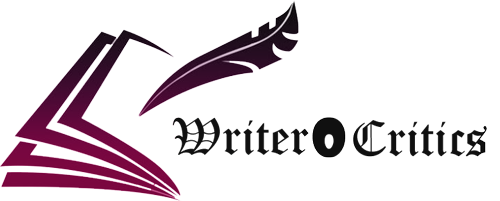
How Healthcare Medical Billing Solutions Support Clinics
Clinics in the modern healthcare scene have to balance patient treatment with the growing complexity of administrative chores. Among these chores, processing claims and billing sometimes takes a lot of time and is prone to mistakes, therefore directly affecting operational efficiency and income. Here is when healthcare medical billing solutions really shine. While letting healthcare providers concentrate on patient care, these specialized technologies assist offices automate billing procedures, lower claim denials, and guarantee prompt reimbursements. The several ways healthcare medical billing systems help clinics in optimizing operations and enhancing financial situation is investigated in this article.
Simplifying Claims Processing
Automation of claim processing is among the most important benefits healthcare medical billing systems provide. Staff members entering patient data, treatment codes, insurance information, and more in a manual setup have to Not only is this method boring, but it also quite prone to human mistake. A little error—such as a typo in a patient’s insurance number—may cause a refused claim, which delays payments and generates more administrative labor.
By verifying data before claims are submitted, billing systems remove these problems. It guarantees proper filling of all fields and matching of billing codes with the received therapy. Many systems even adapt in real-time to mirror government rules or changes in insurance plans. This proactive technique greatly reduces the revenue cycle, helps clinics file cleaner claims, and raises the possibility of first-time clearance.
Minimizing Administrative Load
From booking appointments to handling medical records and payment processing, clinics sometimes run with few administrative staff required to do several duties concurrently. By automating repetitive chores including invoice production, payment posting, and follow-up on outstanding claims, healthcare medical billing solutions help to light this load.
Automation lets clinics keep great accuracy and compliance while reducing billing resources needed. Previously spending hours personally processing claims, staff members may now concentrate on patient communication, front-desk administration, and other critical duties. The decrease in workload not only raises job satisfaction but also lowers administrative staff burn-risk.
Optimizing Cash Flow and Revenue
Any clinic’s longevity depends on cash flow. Errors in billing or delays in claim approvals might cause this flow to be disrupted, therefore influencing the clinic’s capacity to pay staff, make new equipment investments, or grow services. Directly addressing this problem, healthcare medical billing systems speed the whole billing process from beginning to end.
These fixes ensure quick claim submission and lower the amount of denials, therefore facilitating speedier insurance provider payouts. They also make tracking of outstanding payments simpler and offer alarms when follow-up calls are required. Certain systems incorporate analytics capabilities that provide information on financial performance and billing trends, therefore helping clinic management to find and fix revenue cycle inefficiencies.
Reducing Risk and Ensuring Compliance
Strict rules meant to guard patient privacy and guarantee ethical billing procedures control the healthcare sector. For smaller clinics, keeping current with rules can be difficult from HIPAA compliance to ICD-10 and CPT coding standards. Non-compliance not only compromises the standing of a clinic but also could result in hefty fines both legally and financially.
Development of healthcare medical billing systems considers regulatory compliance. They include elements that, as rules change, automatically update security methods and coding standards. Most systems guarantee patient information is always protected by including encrypted data handling and safe access restrictions. Built-in audit trails also facilitate internal review or responses to outside audits when called for.
Improving the Experience of Patients
Although billing seems to be a back-office chore, it profoundly affects the patient experience. Patients may become frustrated by confusing invoices, erroneous charges, or lack of payment choices, therefore erasing trust. Clear, accurate, timely billing data helps clinics to increase openness and strengthen bonds with their patients.
Patient portals where users may check their invoices, insurance coverage, and payment history abound among many healthcare medical billing systems. These sites let patients set up payment schedules, pay online, or contact the billing department. Simplifying the financial element of healthcare can help clinics lower billing conflicts and foster closer patient loyalty.
Encouraging Scalability and Expansion
Whether by adding new sites, rising patient load, or expanding services, the complexity of billing operations rises as clinics grow. Quickly inadequate manual systems cause inefficiencies, mistakes, and financial losses. Designed to scale with the expansion of a clinic, healthcare medical billing systems offer the means to handle more claims without adding administrative burden.
Particularly helpful are cloud-based systems since they let several users safely access billing data from several places. Clinics with remote billing teams or those running multiple locations depend on this adaptability. Scalable billing systems also enable seamless integration of additional services or specializations without redesigning the whole system, therefore guaranteeing continuity and efficiency as the clinic develops.
In conclusion
In a time when the success of healthcare operations depends on accuracy and efficiency, healthcare medical billing systems are absolutely essential in enabling clinics to flourish. These systems have many advantages from improving patient satisfaction and guaranteeing regulatory compliance to simplifying claims processing and lowering administrative loadings. Apart from enhancing the financial situation of clinics, they enable doctors to concentrate more on giving their patients with high-quality treatment. Investing in a trustworthy healthcare medical billing system is not only a need but also a must for offices trying to run more effectively and develop sustainably.
